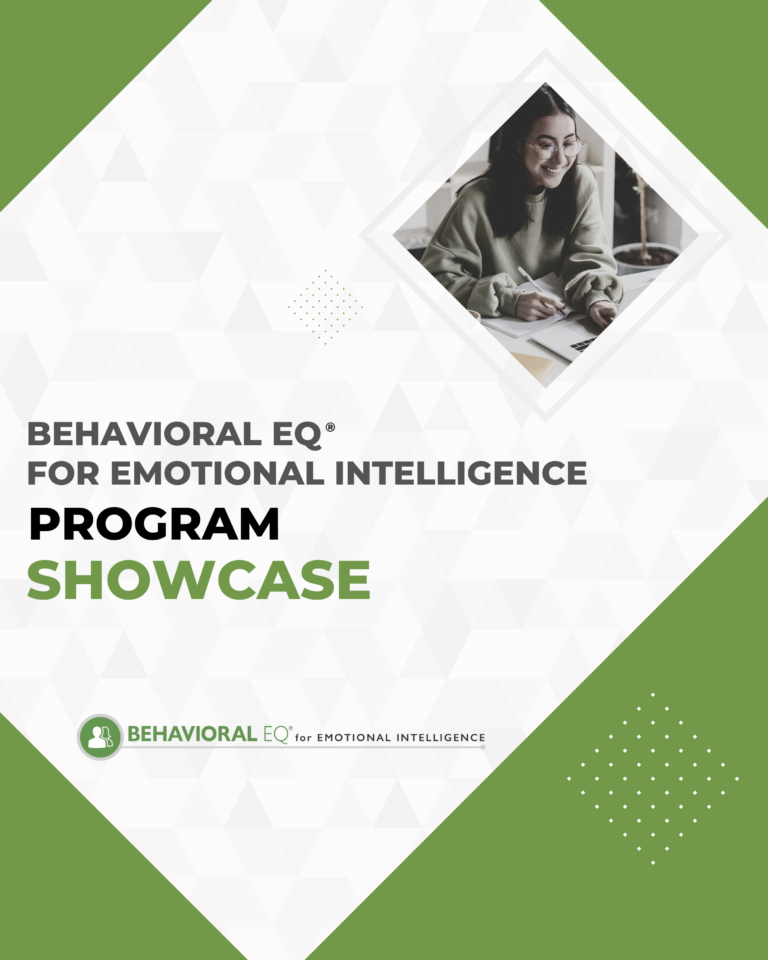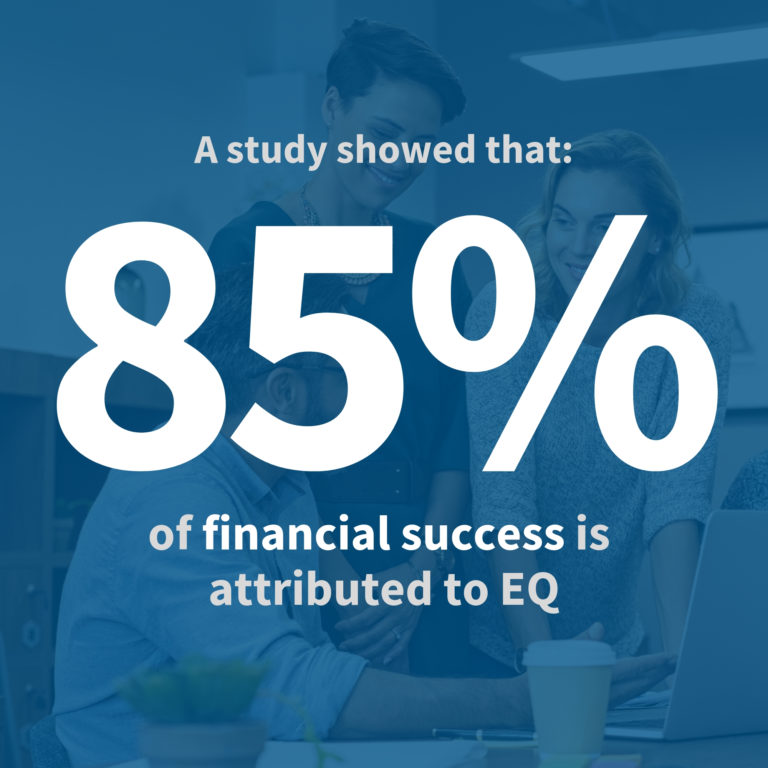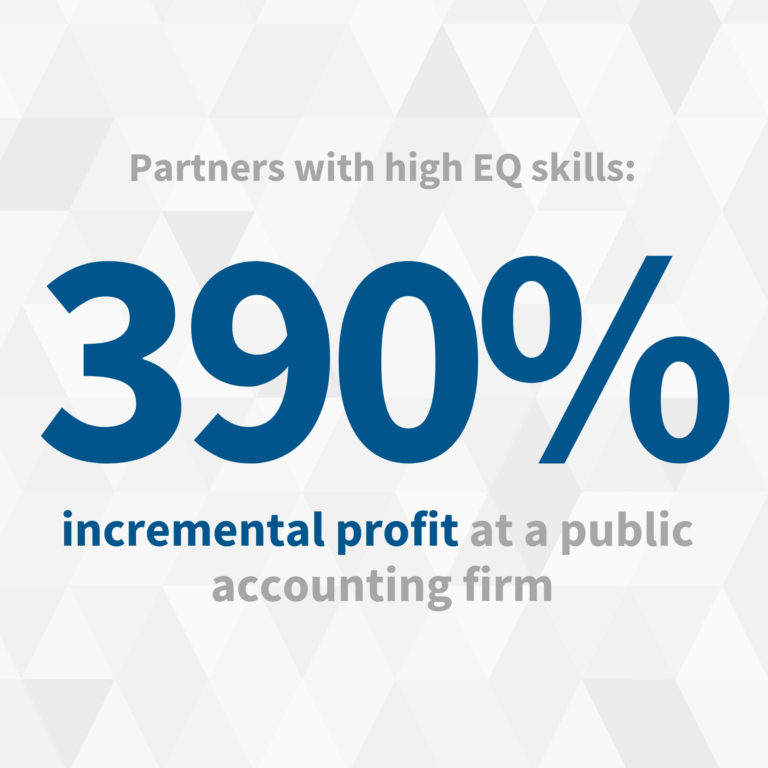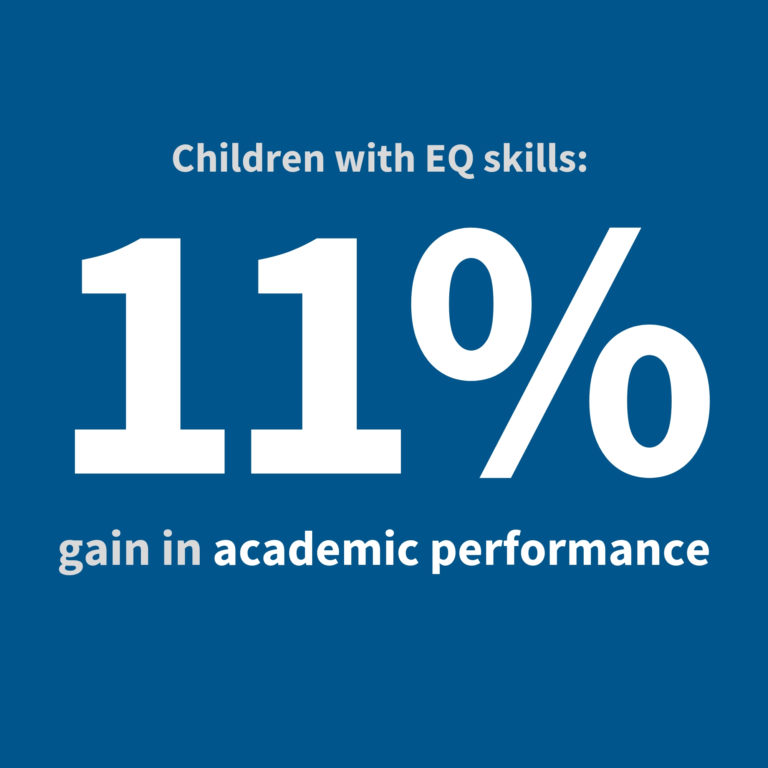 New Horizons
New Horizons
 Project Management Academy
Project Management Academy
 Six Sigma Online
Six Sigma Online
 TCM Security
TCM Security
 TRACOM
TRACOM
 Velopi
Velopi
 Watermark Learning
Watermark Learning
 New Horizons
New Horizons
 Project Management Academy
Project Management Academy
 Six Sigma Online
Six Sigma Online
 TCM Security
TCM Security
 TRACOM
TRACOM
 Velopi
Velopi
 Watermark Learning
Watermark Learning
In today’s workplace, emotional intelligence is even more important than intellect, experience and education. The ability to understand your emotions — and those of others — creates a high-performing and empathic workforce. Learn about the only EQ program that teaches actionable, behavior-based skills.
While Emotional Intelligence is well known, it’s not very well understood. TRACOM offers EQ training specifically on modern workplace challenges and the latest research in brain science.
It teaches people how to recognize their emotions and those of others and then gives them tools to turn emotions into productive behavior. Emotional Intelligence also reinforces a positive mindset. Your people, your teams and your organization will be more connected and more effective with Behavioral EQ training.
And where many competitive EQ models are highly theoretical, Behavioral EQ is practical, researched and focused to drive impact.

We provide Learning & Development Leaders, Facilitators and Consultants a first-hand look at our models and assessments. Register for a Program Showcase and see how our Behavioral EQ training can add value to your organization.
Each one-hour session is delivered online with a certified facilitator. It includes a follow-up phone/video session where you’ll receive your individual profile report and discuss how social intelligence skills can be developed within your organization.

Research shows that 85% of financial success is attributed to EQ while only 15% is due to IQ.

A study of partners at a public accounting firm found that partners with high EQ skills added 390% incremental profit while partners with high analytical reasoning skills contributed just 50% incremental profit.

An analysis of 33 different studies found that children who were taught social and emotional skills had an 11% gain in academic performance.
What I love about this model is the inclusion of the behavioral dimension. Understanding that I can’t see the emotions that are going on in your head, but I can see the behaviors that you are exhibiting because of those emotions. Having that understanding and awareness has taken this a curriculum over the top.
Teaching Emotional Intelligence and SOCIAL STYLE is an important part of achieving a culture of customer service. It’s allowed Starwood Hotels to move from relying on scripted interactions to having Associates who are able to make thoughtful decisions about how to most effectively respond to the needs and requests of our customers. And it’s improved our overall customer satisfaction.
In my executive coaching practice, I use SOCIAL STYLE and EQ to help build more effective leaders. EQ and SOCIAL STYLE provide a common language to talk about problems and accomplishments. Both help diagnose day-to-day situations and help us to discover how best to deal with differences. Together, the models provide the coach and leader a powerful tool to improve interpersonal and leadership effectiveness.
The strength of the model is the emotion paired with the behavioral element. This is what makes the difference in everyday interactions.

TRACOM developed the Behavioral EQ program because of the need to improve the field of Emotional Intelligence (EQ). This program is the culmination of over 25 years of Emotional Intelligence research. Behavioral EQ emphasizes behavior — the outward actions that others notice and respond to — that creates objective, measurable benefits. TRACOM’s Emotional Intelligence program focuses on improving behaviors that research has shown matter the most at work and have a measurable impact on effectiveness.

Studies have shown a clear distinction between emotional understanding and the ability to translate that understanding into outward behavior. While emotional awareness is important, acting on that awareness is what people notice, and it is these behaviors that have the greatest impact on personal effectiveness. Ultimately it is using new behaviors that develops new habits and alters attitudes and beliefs, which is what increases EQ.

Behavioral EQ is so powerful because it utilizes only the best approaches from EQ science. Research clearly shows that existing EQ models are too broad and unfocused; therefore, it was critical to develop a model that focuses only on abilities that clearly relate to performance. TRACOM eliminated extraneous competencies and focused on only the most essential elements of EQ that research shows directly impacts performance.

TRACOM’s Behavioral EQ programs are all highly prescriptive and include strategies for improvement that are very practical and specific. The Behavioral EQ Assessment allows learners to take a look at their survey feedback, choose one or two skills that they would like to develop, so that they can create a specific personal development plan. Research shows that if people try to change too much, they are less likely to achieve their objectives.

The end result is that the Behavioral EQ Model is much simpler and, therefore, easier to understand and apply compared to other models. Contact TRACOM to learn more about why countless organizations from Europe, Asia, North America, Australia and Africa are switching to Behavioral EQ.
TRACOM developed its EQ training model to align with the company’s previous work and research in the areas of behavior and interpersonal effectiveness. In this regard, we relied on our own research as well as the most up-to-date research from the EQ field. We researched and designed our model to measure two distinct concepts: emotional intelligence and behavioral intelligence.
Based on this research, TRACOM’s EQ training model measures both the awareness and understanding of emotions, as well as the management of behavior.
Learn More About the EQ ModelFill out the form below to learn more about our Behavioral EQ training options for your team.
In the dynamic landscape of the corporate world, emotions wield immense influence. They can shape our cognitive abilities, impact decision-making, and even influence our interpersonal dynamics. Even the most skilled individuals can face challenges in high-stress scenarios, such as navigating complex relationships, rapid shifts, or demanding projects.
This is where Emotional Intelligence becomes paramount. It serves as the linchpin for making a positive impact on your team and organization. It lays the foundation for nurturing individuals, teams, and cultures that thrive in the face of adversity.
To foster a resilient workforce at every level, organizations must invest in key emotional intelligence competencies. These include collaboration, effective decision-making, adept conflict management, and the art of motivation. This investment ensures that the organization fosters trust, promotes open communication, and cultivates engagement, enabling individuals to perform at their peak, regardless of the circumstances.